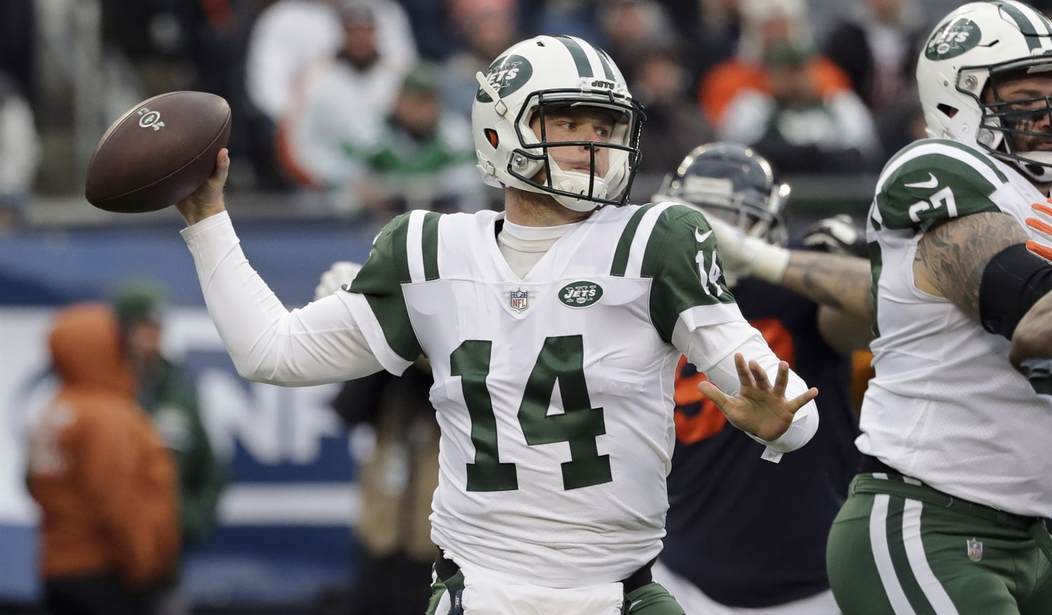The Washington Commanders are approaching homelessness. The team’s lease for FedEx Field in Maryland (just inside the Beltway), expires in 2027. Despite outgoing owner Dan Snyder’s efforts to secure a new location, his personal failures cut short negotiations. “Only Dan Snyder is reviled and incompetent enough to get a bill personally patroned (sic) by two of the most powerful men in the General Assembly…killed,” Virginia Del. Marcus Simon (D-53rd District) tweeted of Snyder’s failed bid to decamp the team to Old Dominion. Now, Snyder has reportedly reached an agreement to sell to a new ownership group, which includes NBA great Magic Johnson.
The Commanders’ new owners are expected finally to secure a location, but exactly where is uncertain. There are three immediate contenders. Virginia lawmakers have already proposed tentative steps towards snaring the team. In Washington, D.C., the grounds of RFK Stadium, the Commanders’ ancestral home, remains unused. “I’m absolutely willing to leverage taxpayer dollars if we know there's going to be a significant societal return on the investment,” Maryland Gov. Wes Moore told Axios in April.
The looming question of this bidding war is how large a sum of taxpayer dollars each jurisdiction will offer the team. The proper answer would be $0. Stadiums are wildly costly to the citizenry. Despite wide fondness for state-subsidized sports, they generally fail to stimulate the economic growth their advocates promise.
From 1970 to 2020 (in America and Canada), state and local governments earmarked $33 billion for major league stadiums. In the past quarter century, the NFL has only built three stadiums without taxpayer support. The median public share of construction costs for these projects stands at 73 percent. As the price of stadiums ticks up, teams will bully local politicians for even more taxpayer contributions. This trend will likely accelerate in the next decade as a wave of stadiums built decades ago age out. Economists John C. Bradbury, Dennis Coates, and Brad Humphreys estimate up to $20 billion in further government assistance by 2030.
Recommended
Subsidy advocates tout publicly funded stadiums as “investments.” They may be investments in sports teams, but not in the public. In 2020, Bradbury, Coates, and Humphreys conducted a mammoth review of more than 130 studies on the subject. “Even with added non-pecuniary social benefits from quality-of-life externalities and civic pride, welfare improvements from hosting teams tend to fall well short of covering public outlays,” the trio writes.
This finding reflects the wide agreement of economists. One survey found that 86 percent of economists say “local and state governments in the U.S. should eliminate subsidies to professional sports franchises.” Another amassed an 83 percent supermajority of economists for the proposition that “Providing state and local subsidies to build stadiums for professional sports teams is likely to cost the relevant taxpayers more than any local economic benefits that are generated.”
Subsidy fanatics make much of the economic growth the presence of sports teams allegedly generate. However, this growth is “generated” largely as one “generates” savings by transferring money between bank accounts. “Subsidies can drive taxpayer and consumer spending to the arena and its neighborhood, but it typically doesn’t increase total entertainment spending in a metropolitan area,” the American Enterprise Institute’s Tim Carney notes. “Instead, a new stadium draws entertainment spending away from other places…that are in other parts of town.”
Americans love sports, and stadiums – however funded – will regularly outcompete other entertainment venues. Such economic tensions are resolved best by market forces and consumer choice, not by state fiat. Subsidy-happy politicians certainly ought not pretend that a new stadium is per se an unalloyed good for all constituents.
What’s more, stadium subsidies socialize the costs of sports. A privately funded stadium funds itself and its team through ticket, concession, merchandise sales, television deals, advertising revenue, and other avenues. All this paid for by the dollars and attention of willing fans. Subsidies, however, compel every taxpayer – regardless of whether they are sports fans – to contribute.
Even still, politicians of both parties play the subsidization game. The governors of Virginia and Maryland, Republican Glenn Youngkin and Democrat Wes Moore respectively, have both signaled interest in buying off the Commanders. In Tennessee, the Republican-dominated state legislature has partnered with the City of Nashville to fund 60 percent of the Tennessee Titans’ new stadium. Lawmakers showered the Titans with more than $1.2 billion from the proverbial taxpayer-funded t-shirt cannon, reportedly the largest stadium subsidy ever.
Nonetheless, over and again, big league sports subsidies prove irresistible to politicians. Their cause, though misguided, is easy to persuade voters. Sports are just cool. However, while subsidies may be the type of crony capitalism that most vividly returns politicians to their glory days playing varsity ball, cronyism remains cronyism.
The history of stadium subsidization is littered with too many wrong mistakes, to borrow from the eminently quotable Yankees Hall of Fame catcher, Yogi Berra. However, should enough politicians discover a modicum of political courage and fiscal discipline, it need not be déjà vu all over again.
David B. McGarry is a policy analyst at the Taxpayers Protection Alliance.

























Join the conversation as a VIP Member